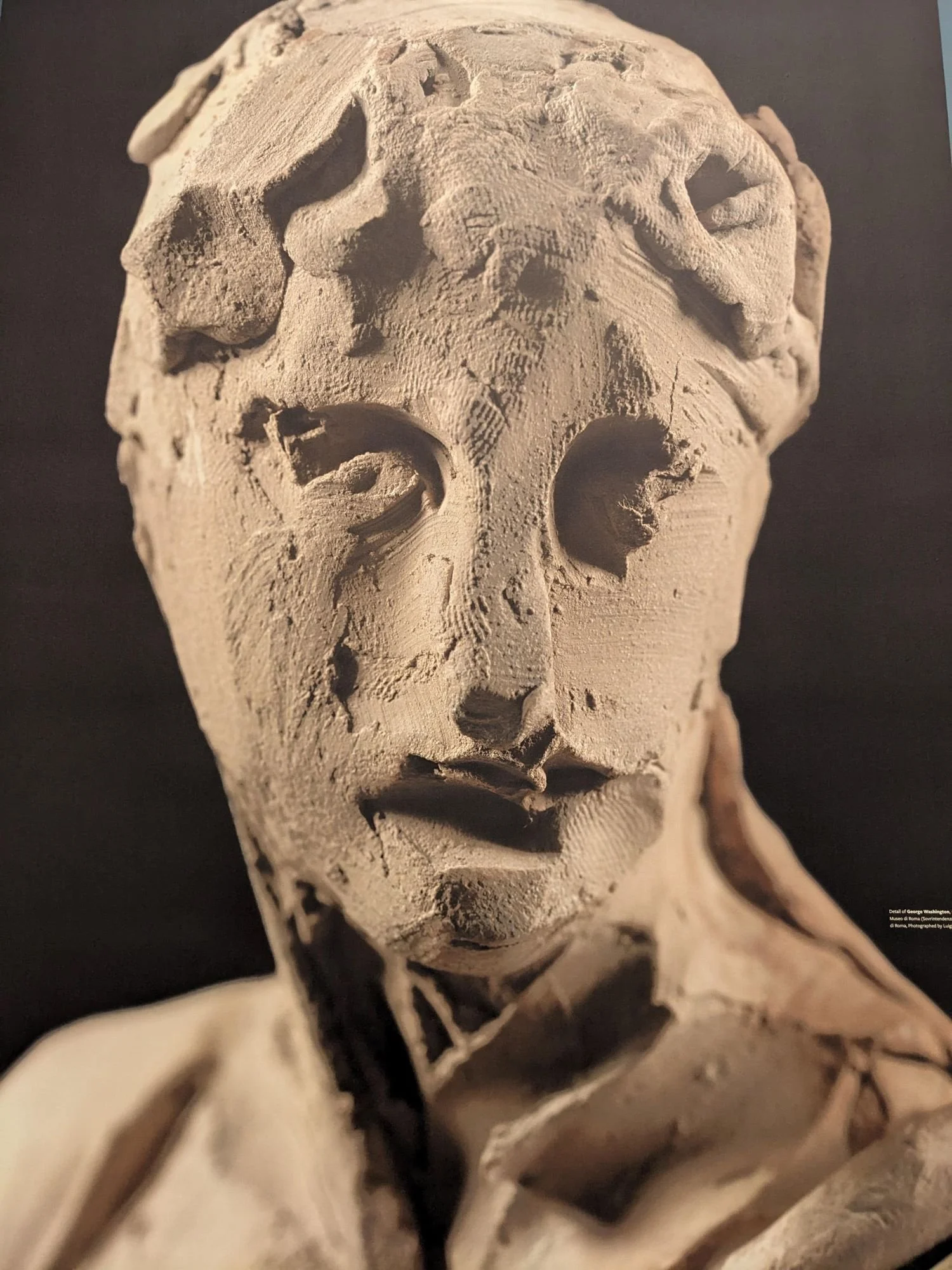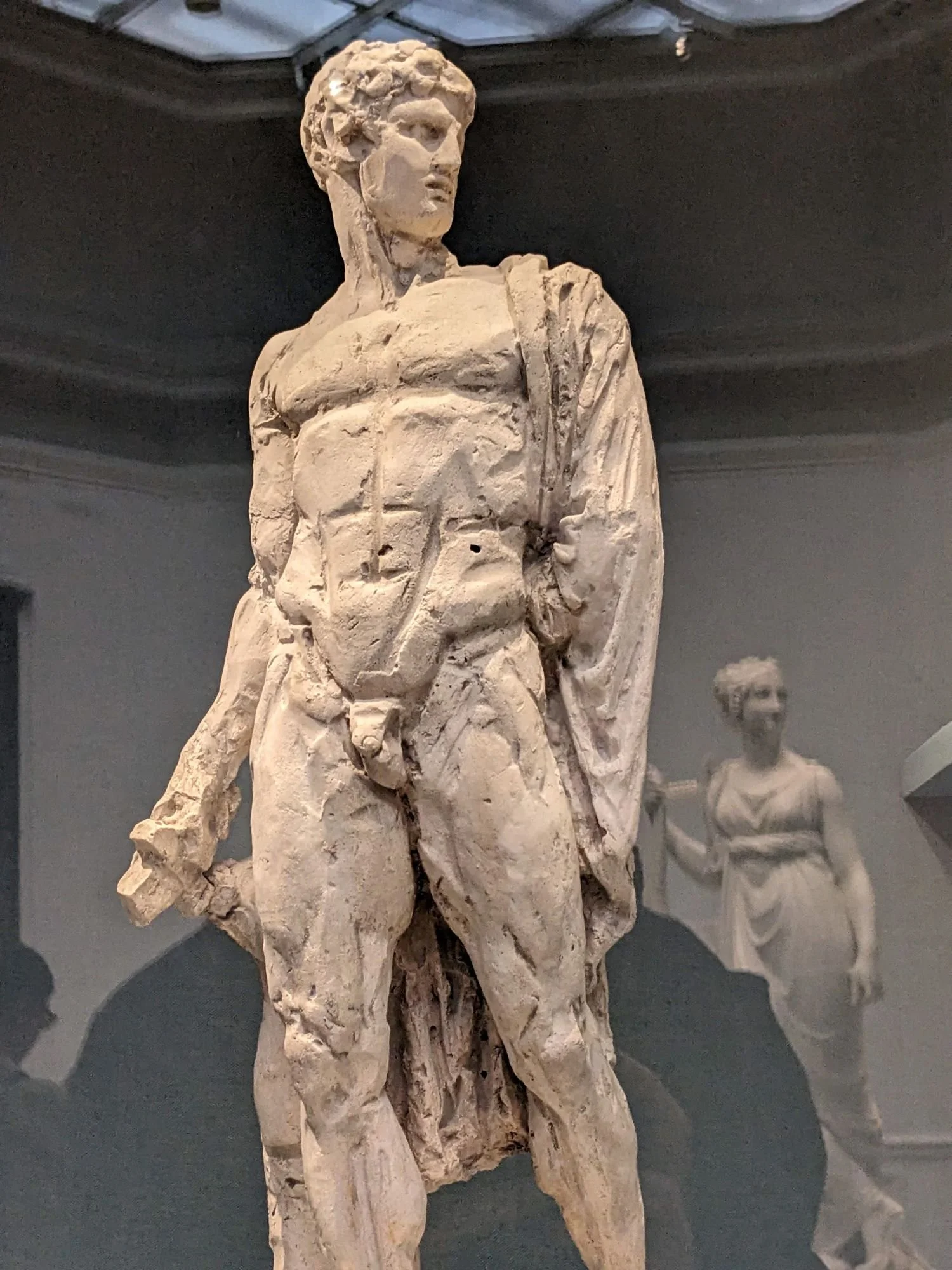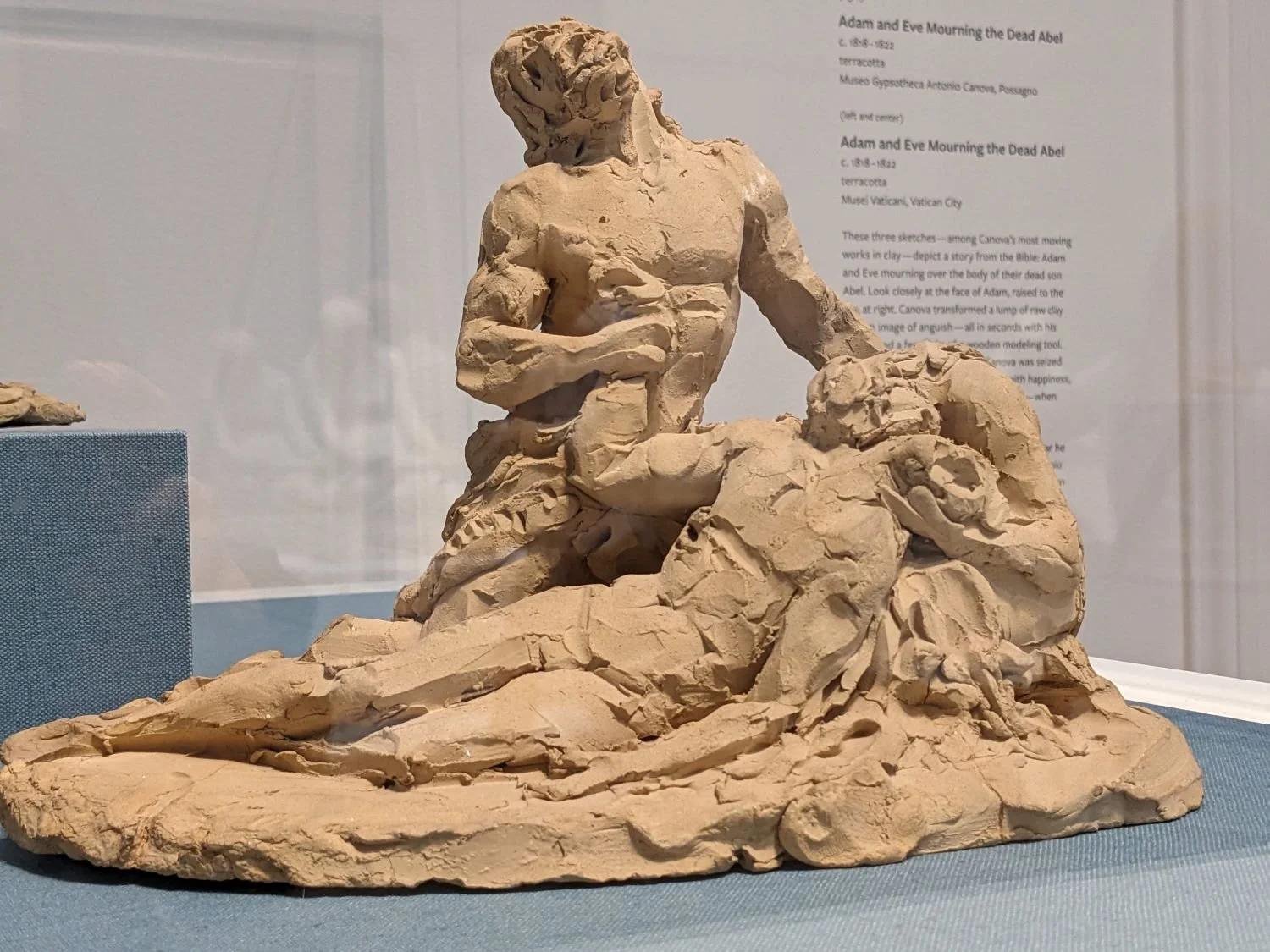Conclusion and Art Unfinished
Canova's Clay
The National Gallery of Art had a special exhibition on the sculpturist Canova. While he is certainly famous for his completed works, I was pulled there for the things he didn’t finish.
The model of these pieces were unfinished, left in raw clay. I've thought about them often since. They seem frozen in a moment of arrival, sometimes torment or success. Honestly, I was surprised to see that these weren’t the completed works, they were so stunning.
It brought to mind the idea of completing projects and a fun conversation in my head about when a work is completed or not. If at all. I think of Oscar Wilde’s comment that art is never finished but merely abandoned. That might be right. I’m not certain that abandoned is the right word for it, though. Those words feel like a classically romantic rally against the fact that life isn’t fair, is fleeting, doesn’t go as planned, etc.
I had also just seen Oppenheimer a few nights before seeing this Canova show. The music, especially, stuck with me. Its main theme, those horns and the strings that send my spirit into a sprint, walked me around the show of clay. It’s right that I would see this question of completed work as a state of sometimes-agony.
In this private walk of mine, I stared at the pieces, observing their disappearing details and their cuts. These gashes were the definition of his massive ab muscles or the sprawl of their mourning. The clay, the way they combined into similar things of people had such a thickness to them that it was as if they were small while alive.
With many of these, I’m sure, Canova hadn’t intended to be the final piece, or even a demonstrated work, but it brought me the simple taste of a truth that a work’s importance isn’t always defined by the artist, goal achieved or not. Works in progress and left well enough alone are also a beautiful thing.
More soon,
Trevor
Now-reading affiliate links:


